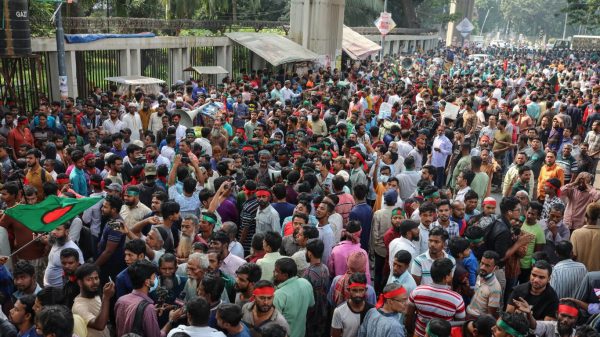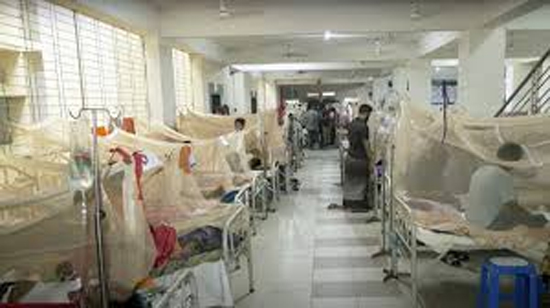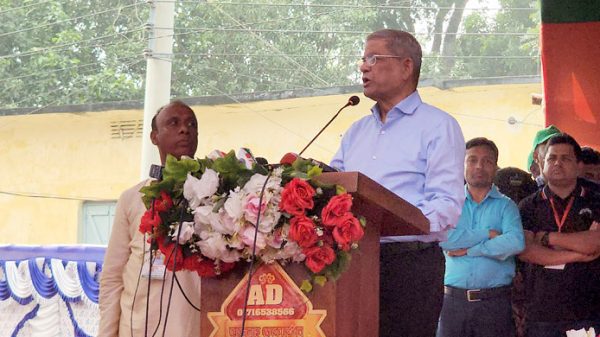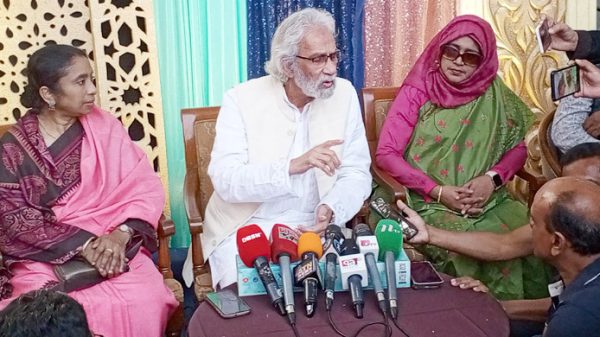Soaring prices in Khulna markets: A struggle for middle and low-income groups

- Update Time : Saturday, 13 January, 2024, 01:59 pm
- 87 Time View
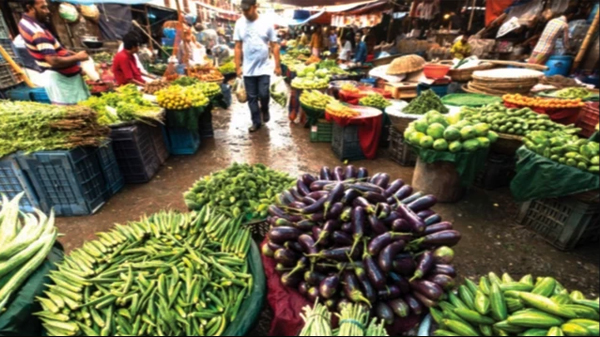
Online Desk: In the aftermath of the January 7 national election, the kitchen markets in Khulna have witnessed a substantial hike in the prices of daily essentials, severely impacting middle-class and low-income families. This sudden increase in prices is making it increasingly difficult for these groups to manage their household budgets.
Recent market trends show a noticeable rise in the cost of various commodities. In particular, the prices of rice have seen a significant uptick over the past week. Seasonal factors have also led to increased vegetable prices during the winter, and essentials like broiler chicken, flour, pulses, chickpeas, ginger, and garlic are not exempt from this trend.
Local consumers express a sense of helplessness, feeling like hostages to what appears to be an uncontrollable syndicate. This situation has exacerbated their financial challenges, especially for those struggling to meet daily expenses.
Traders attribute this surge in prices to a poor supply chain. However, residents speculate that certain unscrupulous traders are exploiting the post-election period to unjustifiably raise prices.
A recent survey of Khulna’s kitchen markets revealed the following price points: Miniket rice at Tk 68-70 per kg, BR-28 Paijam variety at Tk 65-66 per kg, and local variety rice at Tk 50-52 per kg. Vegetable prices have also surged, with beans costing Tk 80-100 per kg, cauliflowers and cabbages at Tk 50 each, and eggplant, ridge gourd, and bottle gourd ranging from Tk 80 to Tk 100.
The poultry market is not immune to these increases, with broiler chicken now at Tk 220-225 per kg after a Tk 20 increase, and Pakistani chicken at Tk 320-340. Beef prices have also risen, selling at Tk 700 per kg despite authorities setting the price at Tk 650.
Amirul Islam, a local fish trader, noted that fish prices have escalated by Tk 10-50. Additionally, the cost of chickpeas has jumped from Tk 85-90 to Tk 100-110 per kg, and high-quality pulses are now at Tk 150-160 per kg. Even the price of local onions has risen, now selling at Tk 80-100 per kg, up from the previous Tk 80-90.
This alarming price rise in essential commodities is placing significant strain on the residents of Khulna, with the most substantial impact felt by those in the middle and lower economic brackets.

